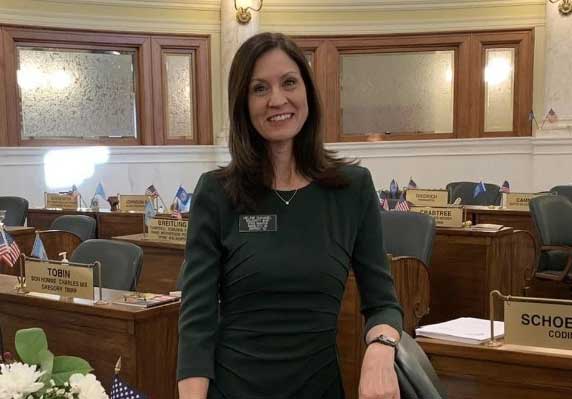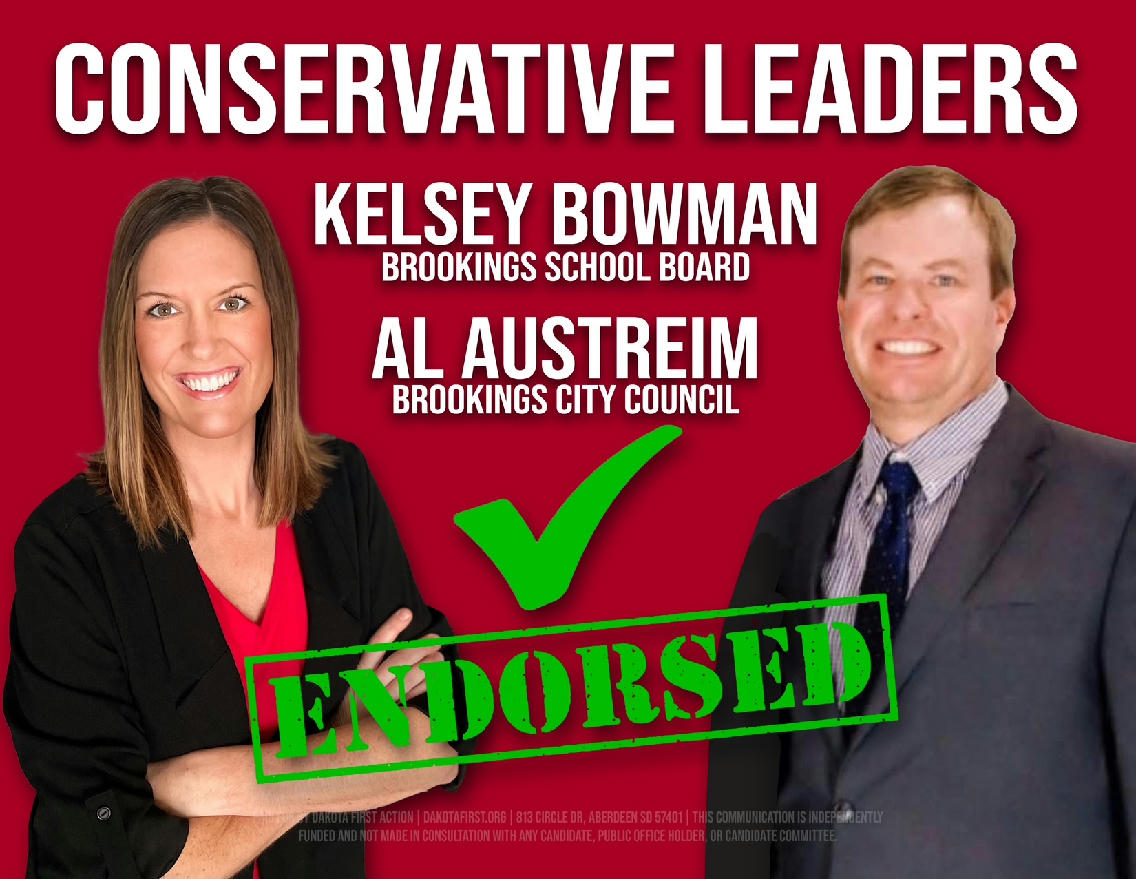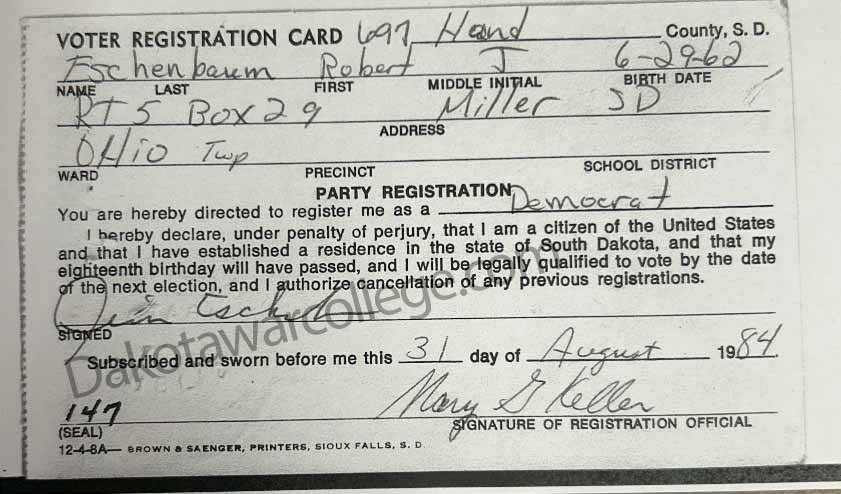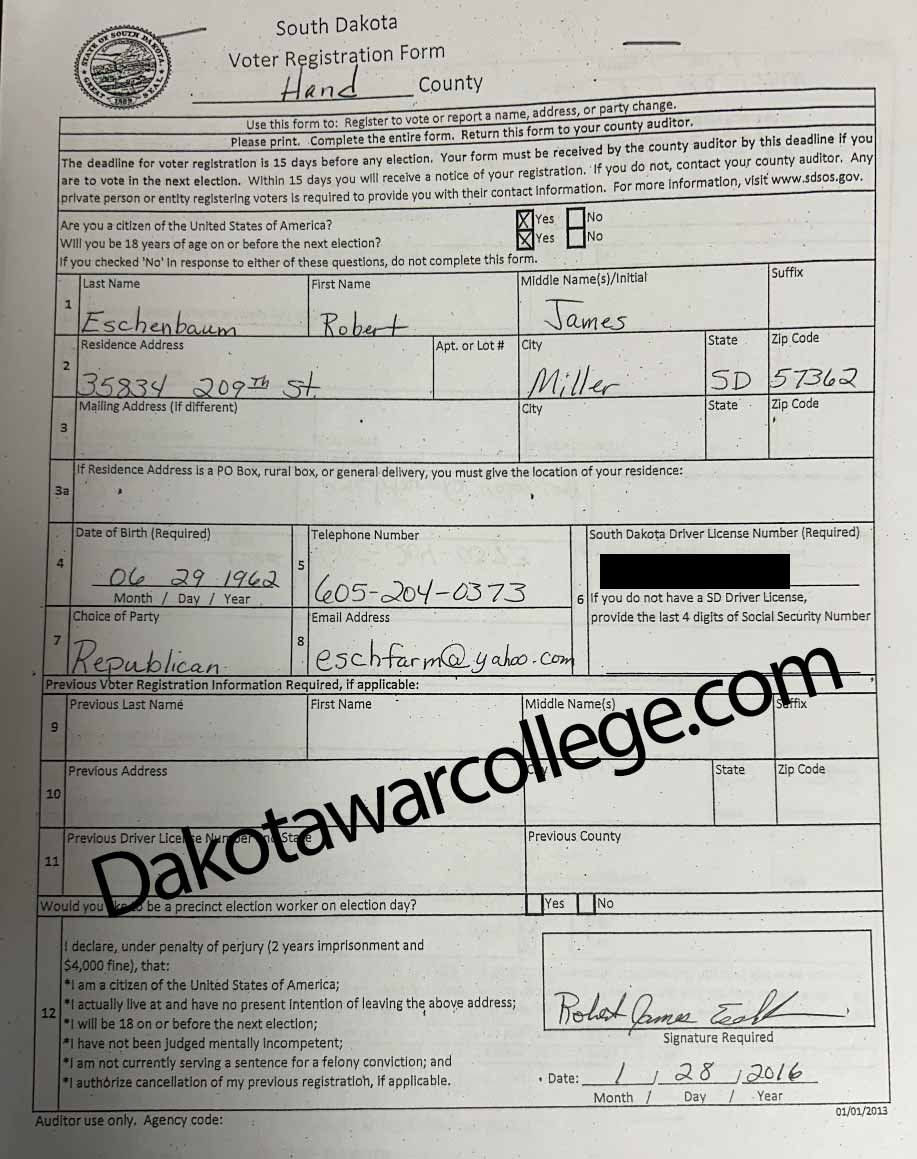 Thoughts on the 100th session by the new guy in Pierre
Thoughts on the 100th session by the new guy in Pierre
by Representative Kent Roe, Dist. 4
I’ve some thoughts on the 100th session.
What a year to be the “new guy” in Pierre. It was the 100th session of the South Dakota legislature, a new Governor was sworn in, we saved librarians and big bird among many things.
I lucked out in the seating arrangement. I was seated beside David Kull from Brandon, District 2. In front of me was Mike Stevens from Yankton, District 18, and Mike Weisgram, Ft Pierre, District 24. To my right and across the aisle was Travis Ismay, another rookie, from Newell, District 28B. Drew Peterson, Salem, District 19, and Eric Muckey, another rookie, Sioux Falls, District 15. All are great men and I am proud to call all of them friend.
I started out slow. It seemed prudent to me to learn the ebb & flow of things. I was on the transportation committee and also on the taxation committee. The learning never slowed and I am happy to have the experience behind me.
I was fortunate to connect with several like-minded conservatives. A rag tag team of common sense folks that mostly agreed on a value set. That value set being one of limited government, big ideas, local control, respect for our educators, and a consensus that things aren’t too bad and the sky is not falling. We managed to get some good thoughtful legislation passed, and stopped some radical agendas too. Additionally, this group of “moderate rebels”, if there is such a thing, didn’t take orders from anyone. I really appreciated this as we were all equals. We had no “dear leader” and no one was expected to “vote that way or else”.
We had additional positive outcomes including
- Defeating HB 1186 that would have eventually defunded GOED’s Future Fund economic development promotion program, including the build Dakota scholarship program.
- Securing funding for SDPB and libraries.
- Funding the graduate medical student assistance program.
- Approving the future water allocation permit for the Western Dakota Regional Water System.
Passing SB 6 to support a new elementary school necessitated by growth at Ellsworth Air Force Base.- Funding for the technical colleges to purchase new & current equipment for the students to learn on.
Personally I had 3 bills I carried on the house side. Senator Crabtree asked me to carry the Ag Terrorism bill, it passed the house 68-2. Senator Wheeler asked me to carry two bills regarding titling of vehicles, both of which passed the house. This seemed like the best approach for a rookie legislator. Learn from the experienced knowledgeable legislators on how to craft, write and carry a bill. It taught me how to work with all impacted parties and the rhythm of well written legislation working it’s way through the process. I cannot emphasize enough how important this is.
Now the down side: I couldn’t help myself when writing this section. I enjoy the full range of the English language, which includes a bite here and there. As the saying goes: The old mares mean, horse s*^t’s green, it’s hard to keep a white shirt clean.
Unfortunately, updating the 140 year old prison got tossed out. I studied this quite a bit as it is a big issue. In 2022 a group was organized to diligently and deliberately come up with a plan. And it took them several years to fully develop this plan. It was presented this year to the legislature. Their plan had several things going for it. It checked all the boxes. It met current incarceration rules. It had facilities for rehabilitation (we currently lack). It met population requirements. It had a great site selection. And lastly, it was paid for. As usual, some teapots were tempestuous, there were several bonnets full of bees, and even a few burrs under a few saddles. Much vexing and gnashing of teeth too, for the religulous types. Was it overpriced? Perhaps. That was one concern I had. It was a concern in a plan that was rigorously prepared and completed by caring professional people. I could live with that. The opponents brought everything they had, which was nothing, as an alternative, and succeeded in their opposition. It proved to me that if you bang an empty pot hard enough you can succeed.
The education committee was presented over 150 half-baked ideas. 40 of which made it to the floor, and (thankfully) very few made it over the finish line. The willingness of some to introduce legislation disrupting public education through measures like education savings accounts, classroom mandates, curriculum restrictions, teacher protocol, and dragging religion into public education left me questioning the purpose of local school boards. Thankfully, we were able to stop this invasion from Pierre into local issues. I cannot stress how much my respect for people willing to stand up and serve on local boards, especially school boards, increased during session. It is important to have people directly in touch with their communities serve these local boards. It is the very definition of local control. Teachers also deserve much credit for surviving an ambitious group of do-gooder legislators. And the Huron school district too! They survived HB1224. Why some in Pierre feel motivated to force their whims on very local issues is beyond my comprehension.
And since I’m certain I’ll get hammered on about it, I’ll write directly to 2 bills we voted on. The first being the “10 Commandments” bill. This mandated that the 10 Commandments MUST be displayed in all schools. Well, this is already in state law, just not the mandated part. Additionally, this bill did not specify which version of the commandments should be displayed (yes, there is more than one version). 2ndly, and I’ll admit I had a little fun with this, the bill did not specify which language to be written in. Since I thought this was absurd from the very beginning I wanted to have a little fun with the poor idea. Should they be written in Hebrew as Moses (likely) received them? Do we use Aramean, Latin, Persian, German(as translated by that greatest of all Catholic monks Martin Luther), King James, NRSV? Do we use the Baptist, Catholic, Democrat, Republican, Orthodox version? (I’m a Lutheran so I really don’t care, I learned them in Confirmation.)
Also, I voted against putting a Chaplain in every school. Let me be serious for a bit. I believe the sponsors of these failed ideas are sincere in their beliefs and are truly good people. The problem is, when we try to mish mash the Sacred with the secular (as these bills attempted to do) it leads us down a path of discounting & devaluing the Sacred. The writers of the 10 Commandments bill defined the 10 Commandments as a historical document. I cannot imagine a statement more repulsive to Christians and Jews. To reduce the word of God to the same status as the house journal (a historical document) simply appalled me, and, conversely, to raise the status of the house journal to Sacred status, really?, come on people. Reducing the Word of God to being a “historical document” only pushed it one step closer to the dust bin of history. Sorry people, not in my lifetime.
We did end up passing SB 216. This is the Governor’s bill aimed at addressing property taxes. While well-intentioned, it will not lower property taxes. It limits property valuation increases (county-wide) to 3% per year for five years. This may slow the growth of property taxes, but potential mill levy increases (valuations and mill levies are tied together to yield enough money to fulfill budgets) could counteract this effect. This is a complex issue. I liked the (now) Lt Gov’s sales tax bill. Rep Goodwin picked it up late in session and offered it as HB 1019 (unfortunately it failed). This bill would give a 35% tax decrease to all South Dakota residents with an owner-occupied home. HB1019 is paid for up front. It raises sales tax from 4.2% to 5%, generating (at current consumer spending levels) $280 million annually, all going to SD owner occupied homes. This results in $417 per $100K assessments. For example, the impact on a $500K assessment would equal $2,085 in property tax reduction ( $417 x 5 = $2,085.00). A huge side benefit to this new 5% sales tax would be the boon to our SD economy. This is money the tax payer has available to spend as they see fit. New shoes for the kids, maybe a treat for the home owners, a new fishing pole, etc. And this revenue doesn’t stop at the impacted tax payer. It goes into the economy of others as well. A new store front for an entrepreneur, additional employees, etc. The point is, it stays in the economy and contributes to the velocity of money (important economic theory there if you want to research it). By the way, 5% is the same as North Dakota and less than other neighboring states. Lastly, the 15 million tourists who visit South Dakota spend $5 billion here. $5,000,000,000.00 x 0.8% = $40,000,000.00 in increased sales tax revenue from tourism alone.
Epilogue- I weep for the state republican committee. We (I use the word “we” with reckless abandon) elected a life long democrat as the new republican state chair. A person who voted for Barry (not Goldwater) twice, and proudly proclaims so. Since taking over this “leader” has produced a “scorecard” of legislators. Here is a link to the house’s scorecard: www.sdpropertyrightslocalcontrol.com/wp-content/uploads/2025/03/2025-SD-House-Property-Rights-Scorecard.pdf. There is one similar to it for the senate.
I’m in a group of (his words-not mine) failures and pathetic republicans. How I long for the days of republicanism, when we stayed out of the way and legislated minimally. When we gave big thinkers a chance, entrepreneurs a clean canvas and did our best to keep our kids here when they became adults.
Enjoy the ride folks!
All the best,
Kent Roe
District 4 SD House of Representatives


 2025 was a challenging legislative session, as you have heard in the news. In spite of too many opponents of legislation that benefits the Black Hills (including by some Black Hills legislators), we prevailed on some of the most important.
2025 was a challenging legislative session, as you have heard in the news. In spite of too many opponents of legislation that benefits the Black Hills (including by some Black Hills legislators), we prevailed on some of the most important. Thoughts on the 100th session by the new guy in Pierre
Thoughts on the 100th session by the new guy in Pierre




